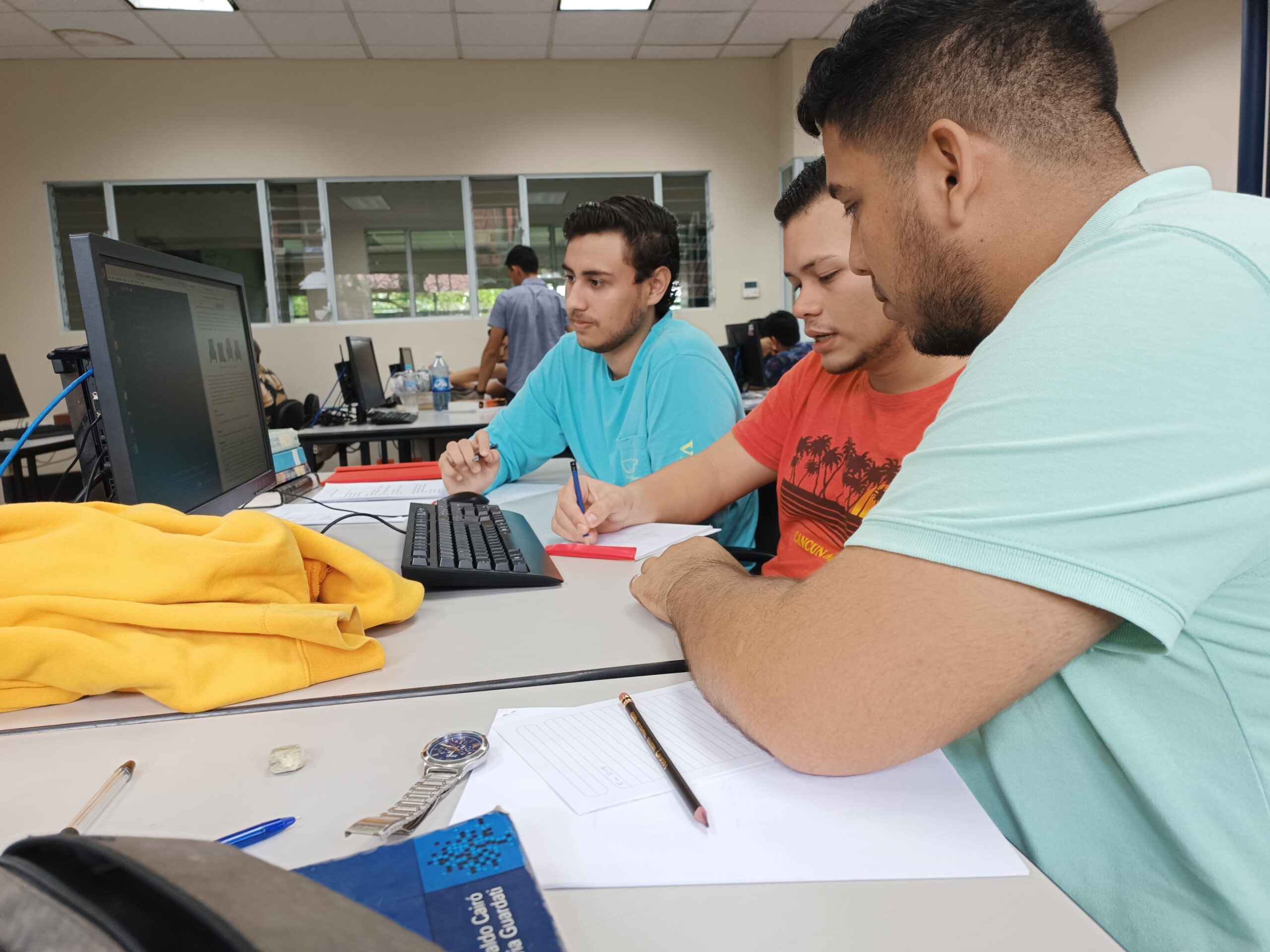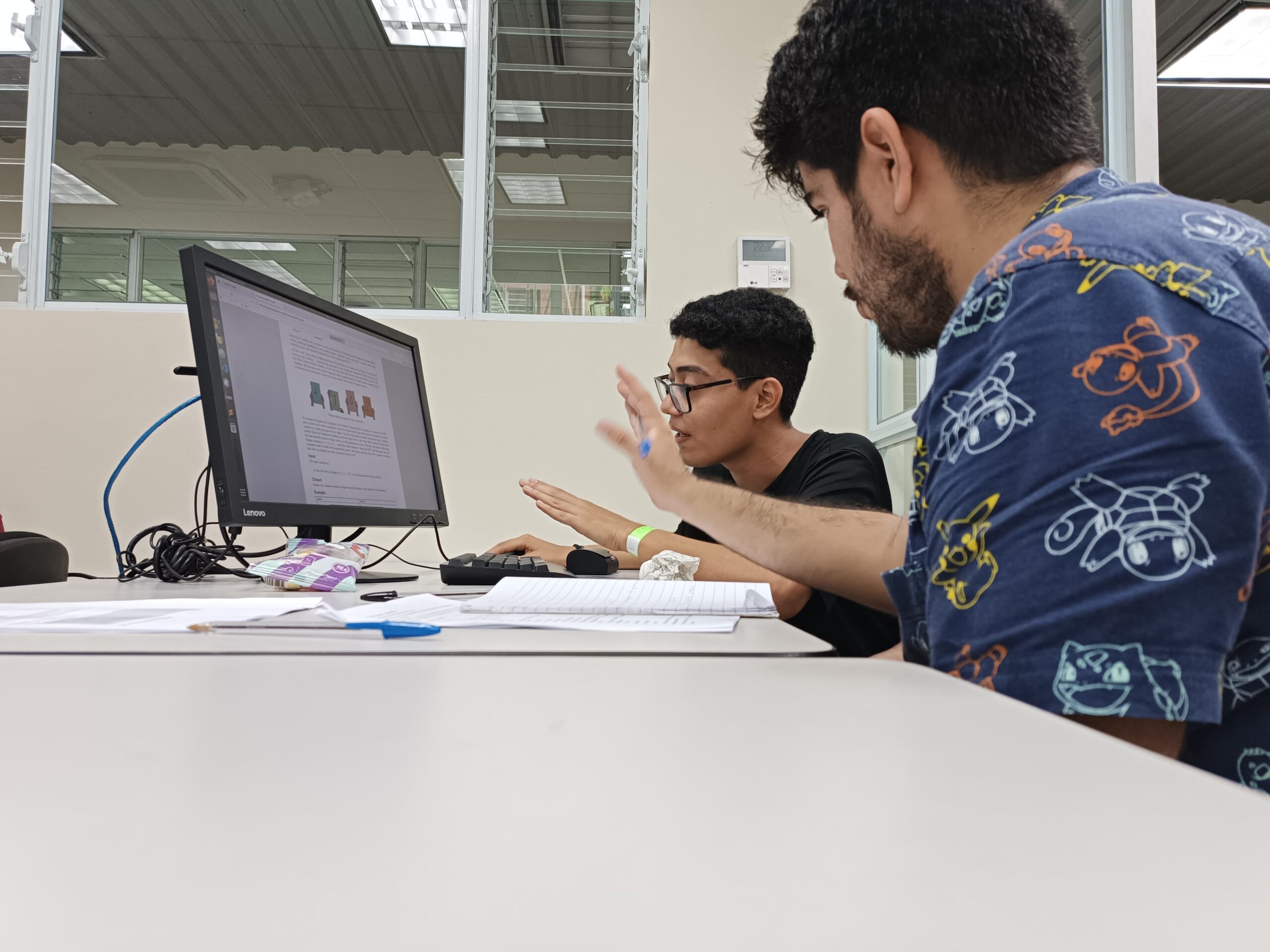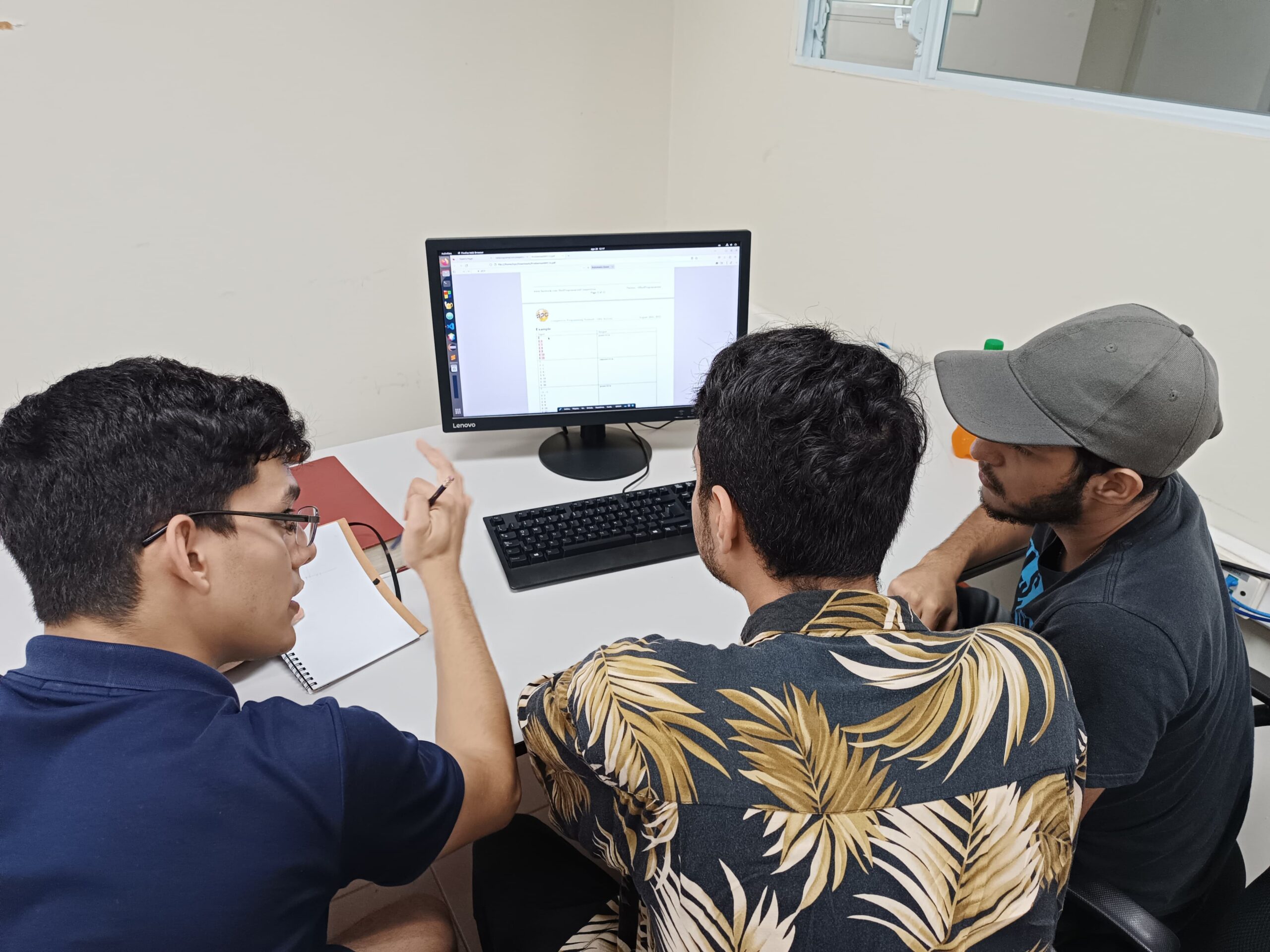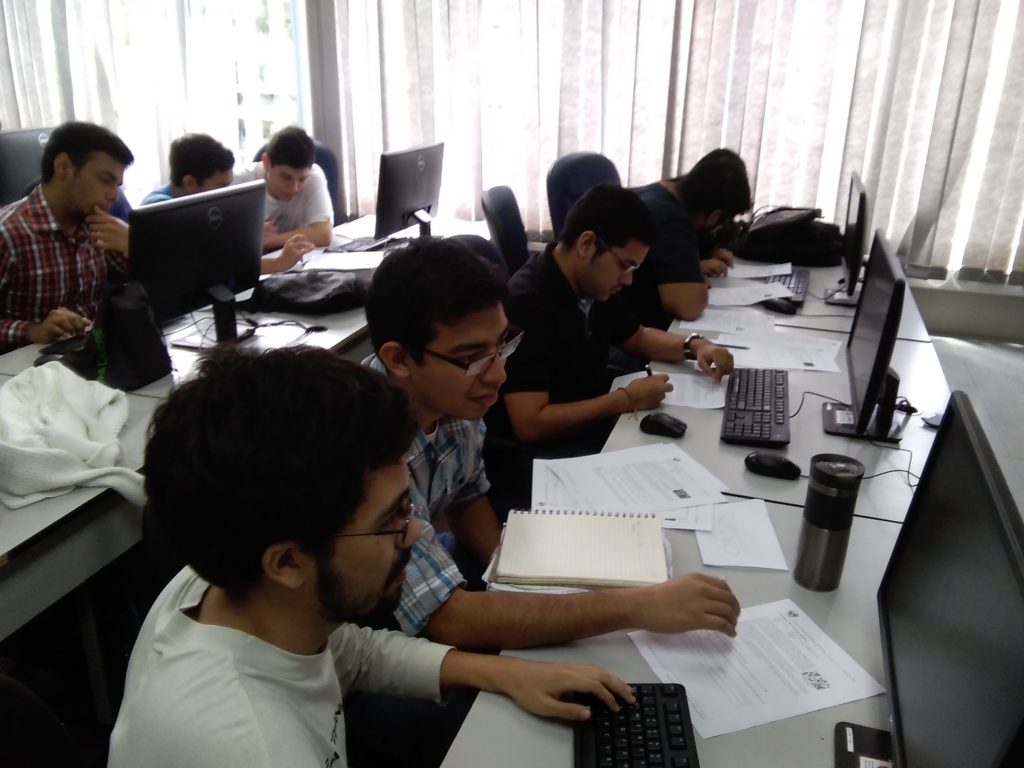Description
Informatics Engineering governs the study of programming languages, software development infrastructures, data base administration tools, and computer science methodologies, as well as the techniques and knowledge necessary to optimize and customize any of these resources according to the needs of the engineer, the users and the problems at hand.
Educated under an umbrella of solidarity, humanism and Christian inspiration, a Computer and Software Engineer at UCA are able to design and develop computational solutions to problems in many areas of engineering and the industry, solutions that put in practice pattern recognition strategies, their translation to efficient software tools and the intuitive presentation of results to the satisfaction of its users.
What You Will Learn
This program consists of 45 courses planning through five years plus a six-month graduation process. The courses are distributed in the following areas:
STEM Fundamentals
Includes the scientific background necessary to understand the principles and fundamentals of engineering and their applications to problem solving. There are courses in Calculus, Physics, and Discrete Mathematics as the basis for programming languages primitives.
Programming Languages & Paradigms
These courses provide the fundamentals of problem solving through computational solutions, covering basic instructions, functions and algorithms, efficient programming, data structures and several programming languages currently in frequent use and development, such as C/C++, Python, Java, Kotlin, among others.
Software Development
Includes courses on the different phases of software development: conception, specification, design, programming, documentation, testing and maintenance. There is a special emphasis on web development, both front-end and back-end approaches, development for mobile platforms, and software architecture.
Database Design & Administration
The fundamental methodologies and techniques to design, create and deploy database architectures with robust administration and security policies; also including the frameworks necessary to perform data analysis and data science procedures.
Applied Computer Science & Engineering
The applied engineering courses offer students training in many important areas used in academic and industrial environments. These areas include Artificial Intelligence and Machine Learning, Internet of Things, IT Security, Project Management, Computer Networks, Business Intelligence, Computer Simulation and Programming Language Theory.
Technical Electives
These courses have the function of expanding the knowledge of the students in the different fields of Computer Science Engineering that, according to the institutional possibilities, are in the capacity to offer and that are demanded by the dynamic and changing reality at the national and regional levels.
Social Outreach & Humanism
Students have 5 elective courses in this area, choosing among several topics such as environmental studies, climate change, ecology, ethics, sociology, writing, philosophy, and many more.
Facilities At Your Disposal
Practice in our courses is of utmost importance, which is why we have hardware and equipment to complemente theoretical knowledge acquired in lectures. We have five computer laboratories that our student can freely use to study, practice, do their homework and their class projects, and where our course assistants conduct guided workshops that are part of the program.




Schedule
This program has been designed for full-time students with its suggested course election per semester. From the first to the fourth year the schedule are daytime, however, the fifth year, the classes are programming early during the morning (7:00 to 8:40) and late during evening (17:30 to 20:10). This allows senior year students to obtain and complete internships or achieve their first job.
Contact Us
José Enmanuel Amaya M.Sc.
Director of Computer Sciences and Engineering
Telephone: 2210-6600, ext. 1047
Email: earaujo@uca.edu.sv

